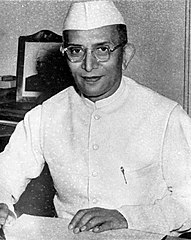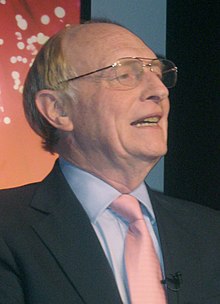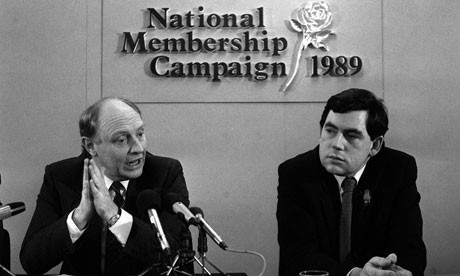A New Jerusalem
Trials and tribulations in the Imperial Federation
Introduction
The reign of Elizabeth II, Queen-Empress, has thus far seen an era of relative amity and concord amongst the constituent parts of the Federation. The process of federalisation wasn't perfect however, and pressures on unity remain in the jungles of Africa as radical leftism has inspired jungle rebellion in Rhodesia and Nyasaland; and parts of India. Their own governments struggle to contain them and the deployment of Imperial troops in the dominions under the premiership of Margaret Thatcher has sparked dissent and anger both in Great Britain and abroad; and the ability of the Tories to retain their position seems... precarious.
How It Works
I'm Her Majesty the Queen, and you all are politicians. In addition to serving as HMQ, I'll also serve as the Press, foreign nations, etc. Great Britain herself has no Parliament or Prime Minister, but rather share those Imperial institutions; making her roughly similar to England in the present-day United Kingdom. The Prime Minister is nominated by the Imperial Parliament, which is composed of 800 seats in the House of Commons -- 400 to Great Britain, 400 allotted amongst the dominions -- and a hereditary/appointed House of Lords. Each dominion also has it's own parliament and prime/first minister. You may play as a member of any parliament, or as one of the first ministers, or a party leader, etc etc.
You all can pass legislation and will be responding to events that I will regularly post. There will be no 'regular' or annual update, after the manner of Empire of Harmony, just the events. That may change in the future depending on the input of the players, but that remains to be seen.
Rough Sketch of the World
The Zhukov years in the late 60s and early 70s resulted in a USSR purged of liberals and revisionists and a revival of hardline Stalinism. This revival has lasted to the 90s, and the USSR remains internally and externally brutal; quashing dissent domestically and in her sphere of influence. Because of this, Germany remains disunited and Afghanistan is a Soviet satellite. The Korean and Vietnamese Wars were bloody affairs as Anglo-American forces battled against Soviet-backed puppets; with Korea ending in a jagged stalemate and Vietnam retaining her monarchy only through a great deal of jungle warfare.
The Middle East remains quiet, mostly, with crowned heads ruling in Iraq, Iran, and Jordan; all backed by American or British bank accounts. Egypt bloodily overthrew her own monarchy and suffers under a fundamentalist Islamic regime, eyeing a united and democratic Israel. After having defeated Egypt in two previous wars the Israelis are confident they can defeat all comers, but they could be proven wrong. India and Pakistan glare angrily at each other over the issue of the Kashmir; but London keeps them from hitting each other over the head. The Falklands remain British, as they always have, as Argentina is too intelligent to go against Imperial might.
The Imperial Government:
Monarch: Her Majesty Elizabeth the Second of the Imperial Federation (Ab Ovo)
Prime Minister: Margaret Thatcher (Maxwell500)
Chancellor of the Exchequer: Norman Lamont (NPC unless someone takes him)
Secretary of State for Foreign and Federal Affairs: Douglas Hurd (Shynka)
Leader of the House of Commons: Sir Geoffrey Howe (NPC unless someone takes him)
Leader of the House of Lords: John Julian Ganzoni, 2nd Baron Belstead (NPC unless someone takes him)
Dominions:
Canada (Unionist government)
Newfoundland (Labour government)
Australia (Unionist government)
South Africa* (National Front government**)
Rhodesia and Nyasaland (Unionist government)
India (Labour government)
Pakistan (Labour government)
Sri Lanka (Labour government)
Fiji (Unionist government)
The Gambia (Labour government)
Ghana (Labour government)
Guyana (Unionist government)
Kenya (Socialist government 1)
Malta (Liberal Democratic government)
Nigeria (Unionist government)
New Zealand (Unionist government)
Uganda (Labour government)
Belize (Unionist government)
Papua New Guinea (People's National Congress government 2)
Jamaica (Unionist government)
and a bunch of little island nations
*bit of an outcast, with all that racial nastiness
**the National Front is the hardliner white supremacist party in SA, and is the local affiliate to the wider Unionists; much to the chagrin of the Unionists themselves at times...
1 -- the Socialist Party of Kenya is the most leftist of the ruling governments in the Federation; and is pointedly unaffiliated with Labour, who they view as too reactionary. Why Kenya even remains is the Federation is, at times, unknown.
2 -- the People's National Congress is the ruling party of New Guinea, and is stridently conservative.
The Political Parties:
Conservative and Unionist Party: Known ITTL as the Unionists rather than the Conservatives, the CUP and it's adherents is one of the largest parties in the Federation. A staunch proponent of John Major's "Vision of Federalism", the Unionist Party is the representative of mainline Toryism, and has sister parties in every single dominion; remaining popular in the "Anglo" dominions of Canada, New Zealand, and Australia.
Labour Party: Main opposition to the Unionists, Labour promotes a form of democratic socialism and grassroots democracy. Accused by many conservatives of being funded by the USSR, Labour in any case tries to avoid hewing to the ideological extremes of the Left and remains publicly committed to Queen and Country. Influenced ideologically by the legendary heavyweight Clement Attlee, Labour is the party of choice in many of the African and Asian dominions for the party's focus on autonomy and what it calls "true, community federalism".
Liberal Democratic Party: Centrist kingmakers extraordinaire, the LibDems have been part of every single ruling coalition -- Tory or Labour -- since their formation in the Eighties. Espousing "moderation in all things and all courses" according to it's Founding Principles, the LDP cannot be truly said to be ideological so much as pragmatic; avoiding extremes in any direction for the sake of peace. Not very popular in the wider Federation, the only dominion with a Liberal Democratic government is Malta.
Suggested player application:
Name:
Position:
Age:
Bio:
Player list:
Jeremy Corbyn (Labourite IMP) -- Luftwafer
Rahul Sharma (Labourite PM of India) -- TJDS
Benazir Bhutto (Labourite PM of Pakistan) -- Noco19
Neil Kinnock (Labourite Leader of the Imperial Opposition) -- Sealy300
Ian Smith (Unionist PM of Rhodesia and Nyasaland) -- Bonecracker(NL)
Gordon Brown (Labourite IMP) -- Watercress
Alfred Sant (LibDem PM of Malta) -- Korona
Muhammad Sharif (Tory Leader of the Pakistani Opposition) -- XVG
Jean-Robert Bourassa (Liberal Leader of the Canadian Opposition) -- Dadarian
Peter Hitchens (Tory IMP) -- 99KingHigh
David Steel (LibDem IMP and Deputy IPM) -- LatinKaiser
Barak H. Obama Sr (Socialist PM of Kenya) -- Scrapknight
Shehu Shagari (Tory PM of Nigeria) -- Harpsichord
PM of South Africa -- alexander23
Labourite IMP -- naxhi24
Julius Chelanga (Socialist IMP for Kenya) -- Fingon888
Asif Ali Zardari (Labourite IMP for Pakistan) -- Jeeshadow
Bruce Watson (Australian Tory MP) -- Terraferma
Some dude, probably -- DensleyBlair
Updates:
Coldfront channel is #London
Last edited:








